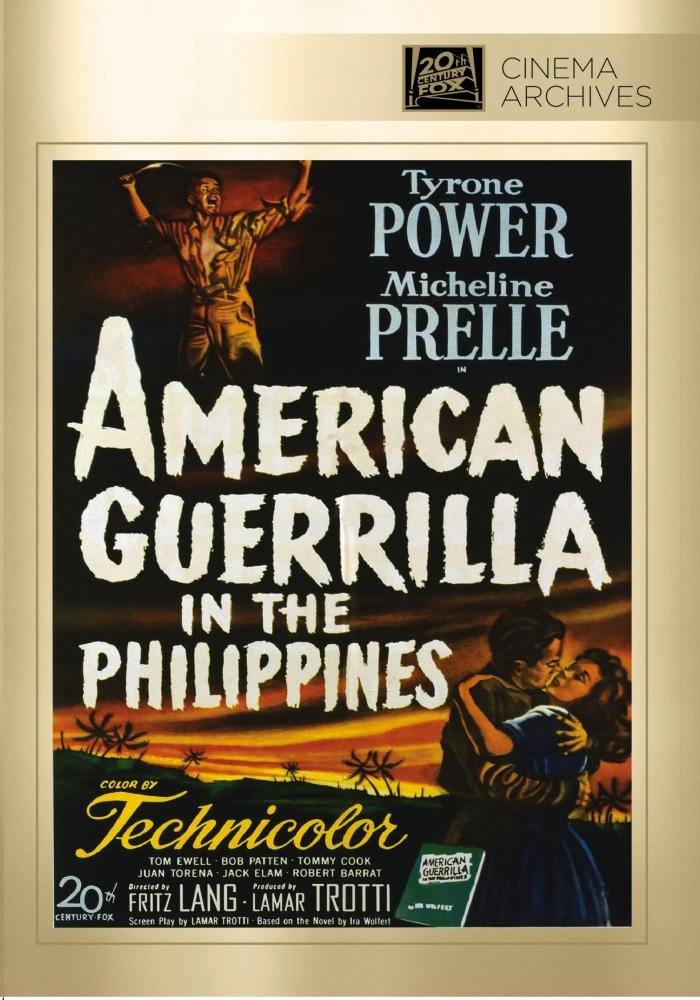
By 1950, it appears that Fritz Lang had gone from being one of the most innovative and daring directors in the world, to becoming a real Yankee Doodle Dandy. At least that is my take after viewing his American Guerrilla in the Philippines (1950). The film has just been released to DVD as part of the Fox Cinema Archives, and while it is pretty good for what it is, I found it hard to believe that it was actually directed by Lang. This only thing missing from this jingoistic romp is Ronald Reagan.
Tyrone Power stars as Ensign Chuck Palmer, an American naval officer stranded in the Philippines after his ship went down. It is spring in 1942, and Bataan has fallen to the Japanese, or the “Japs,” as they are exclusively referred to this movie. The story begins with six survivors hiding out at a lighthouse, watching their ship burn. They decide to split up and do what they can to get out of the area, and back into action. Palmer and Jim Mitchell (Tom Ewell) head out together, looking for a boat to take them some 1200 miles to Australia.
With Japanese soldiers crawling all over the islands, this idea is not very feasible, as they quickly realize. The two of them get into working with the Filipino rebels against the Japanese, hence the title. The love interest is supplied by Micheline Prelle as Jeanne Martinez. When Palmer first meets her, he helps her out, and it is clear that he is smitten. Unfortunately for him, she is married. When her husband will not give up the whereabouts of the Americans to the Japanese, he is killed. Bingo! The lovers are now free to be together.
The movie ends with the triumphant return of General Douglas MacArthur. With the rousing parade greeting him, I guess we were all supposed to stand up and cheer. Yippee! The good guys have won! But after watching all of those brave Filipinos and Americans die, it seems kind of cowardly for MacArthur to have waited until the coast was clear before showing up.
During the war, there were tons of B movies that served as little more than propaganda for the fight. That is certainly understandable, and I have watched and enjoyed many of them. I do not really get the need for one in 1950 though, unless Lang was trying to bolster his credibility during the Red Scare of the time.
Lang’s Metropolis (1926) is one of the most iconic films in history, and his first talking picture M (1931) is seen by many as the first film noir. I consider both to be masterpieces, and have a very high regard for such others as The Big Heat (1953) and Beyond A Reasonable Doubt (1956) as well.
Had Lang not fled Germany when he did, he almost certainly would have been killed by the Nazis. It must have been a terrifying situation, and one which had to have scarred him for life. We can read and watch documentaries about that period, but unless you were there, there is just no way anyone could truly understand it.
American Guerrilla in the Philippines is a better than average B movie, and if it were directed by Michael Curtiz (Yankee Doodle Dandy) or Fred de Cordova (Bedtime for Bonzo), I would understand. Then again, it being so unusually bland has a certain appeal all its own. I have found many “lost” treasures in these 20th Century Fox Cinema Archives releases, and while I would not call this a lost treasure, it is definitely an interesting detour from a legendary director.